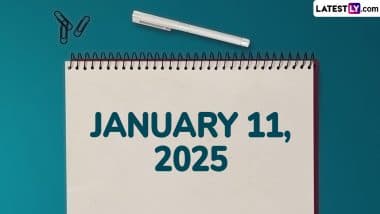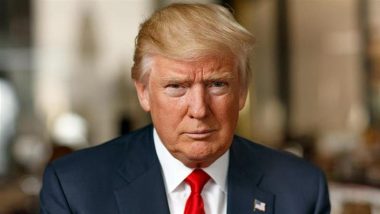Washington, Apr 22 (PTI) President Donald Trump has said that he will halt issuing of new Green Cards or legal permanent residency for the next 60 days as part of his executive order to temporarily suspend immigration into the US.
However, the move will not have any impact on those entering the country on a temporary basis, Trump said on Tuesday.
Many have interpreted that those on non-immigrant work visas like H-1B issued mainly to foreign technology professionals will not be impacted. Seasonal immigrant workers for agricultural purposes too will not be impacted.
In any case, the executive order to be signed by Trump on Wednesday will impact a large number of tens and thousands of Indian Americans, who are waiting to get a green card. This is expected to further delay the process.
"We must first take care of the American worker... This pause will be in effect for 60 days, after which need for any extension or modification will be evaluated by myself and a group of people based on economic conditions at the time," Trump told reporters at his daily White House news conference on coronavirus.
“This order will only apply to individuals seeking a permanent residency, in other words, those receiving green cards, big factor, will not apply to those entering on a temporary basis,” he asserted.
Without elaborating, he said that there will be exemptions.
“Some people will be able to get in. We have to do that, obviously, even from a humane standpoint,” he said.
“We have a solemn duty to ensure these unemployed Americans regain their jobs and their livelihoods. Therefore, in order to protect American workers, I will be issuing a temporary suspension of immigration into the United States."
"You heard about that last night. By pausing immigration, we'll help put unemployed Americans first in line for jobs as America reopens,” he said.
It would be wrong and unjust for Americans laid off by the virus to be replaced with new immigrant labour flown in from abroad, he asserted.
Trump said, moving forward, his administration will examine what additional immigration related measures should be put in place to protect US workers.
“We want to protect our US workers, and I think as we move forward, we will become more and more protective of them,” he said indicating that more such measures are being prepared.
As a result of the coronavirus pandemic, more than 22 million American workers have applied for unemployment benefits, which is a record in itself.
In the coming weeks, several more millions are expected to being laid off as the US economy is in tatters.
Trump said that this pause on new immigration will also help to conserve vital medical resources for American citizens.
“A short break from new immigration, depending on the time we're talking about, will protect the solvency of our healthcare system and provide relief to jobless Americans,” he said.
Responding to questions, Trump explained that he has to take this unprecedented measure because of the massive impact that coronavirus is having on the US economy.
“The last thing we want to do is take American workers' jobs. It's one thing when we were at essentially--they used to call it full employment and it's another thing right now,” he said.
“Right now, we have people that have lost their jobs and we hope they're going to come back and come back fast and then we can have an even deeper discussion. But right now, we have to have jobs for Americans,” he asserted.
According to a recent report by Congressional Research Service, currently there are almost 1 million lawfully present foreign workers and their family members waiting to receive a green card.
This employment-based backlog is projected to double by financial year 2030.
“Under current law, and owing to a limited number of green card issuances, the current backlog of 568,414 Indian nationals would require an estimated 195 years to disappear,” CRS said.
As per the existing law, the US can issue a maximum of 1,40,000 employment-based Green Cards every year with a per country cap of seven per cent.
Accordingly, in fiscal year 2019, Indian nationals received 9,008 category 1 (EB1), 2,908 category 2 (EB2), and 5,083 category 3 (EB3) green cards. EB1-3 are different categories of employment-based Green Cards.
(This is an unedited and auto-generated story from Syndicated News feed, LatestLY Staff may not have modified or edited the content body)













 Quickly
Quickly



















